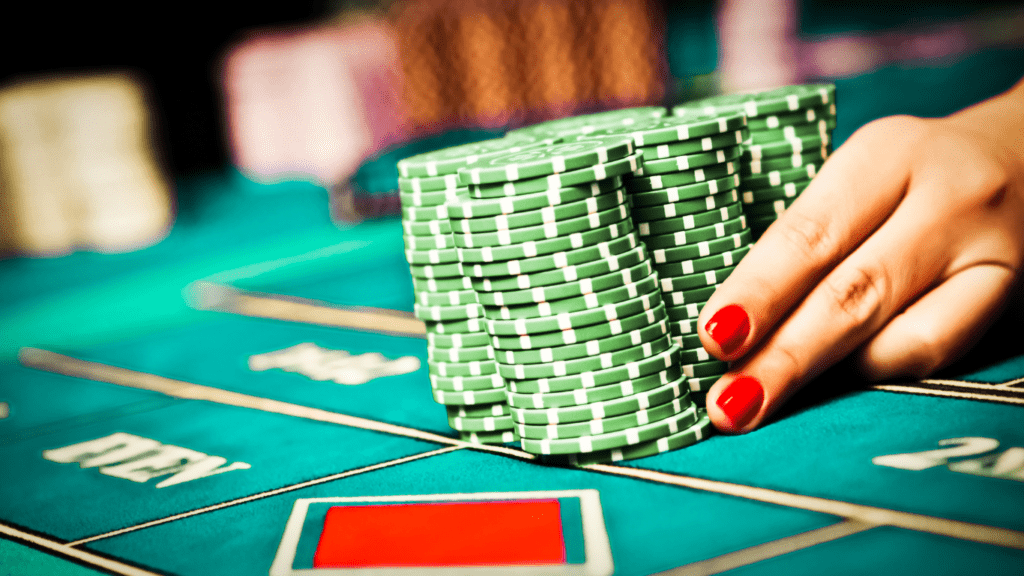Understanding Vulnerable Communities
Vulnerable communities often face economic, social, and educational disparities. I see how these factors create an environment where gambling can disproportionately harm these groups. Characteristics include:
- low income
- limited access to education
- reduced employment opportunities
Individuals in these communities might see gambling as a chance to improve their financial situation, which can lead to high-risk behaviors.
Economic challenges in vulnerable communities often result in increased financial strain. Families may struggle with essential expenses, making the lure of quick financial gains from gambling particularly enticing. Many, however, experience worsening debt, leading to further economic hardship and impacting entire households.
Social dynamics also play a crucial role in the susceptibility of these communities to gambling-related issues. When there’s a lack of support networks and recreational options, gambling becomes a prevalent pastime. Residents might engage in gambling activities more frequently, viewing it as a primary social activity.
Educational disparities compound these challenges as many in vulnerable communities lack awareness of the potential risks associated with gambling. Limited understanding of probability and addiction increases the likelihood of developing problematic gambling habits, making awareness and education crucial in these areas.
Economic Impact of Gambling

Gambling significantly affects the economic fabric of vulnerable communities. While some argue it creates jobs and boosts local economies, the adverse effects often outweigh these benefits.
Financial Instability
Gambling induces financial instability by encouraging individuals to spend beyond their means. Since many participants hope to hit it big, they often end up depleting savings and accruing debts. Families face substantial challenges when breadwinners gamble away wages, struggling with essential expenses like housing and food. Subsequently, financial insecurity escalates as frequent gambling turns into a cycle of losses and desperation.
Rise in Poverty Levels
Poverty rates escalate in communities heavily influenced by gambling. As individuals lose money, they may resort to using welfare and social assistance programs, straining public resources. Property values might diminish when gambling-related activities proliferate, causing broader economic decline. In such environments, limited access to financial literacy exacerbates the situation, leaving residents trapped in poverty loops catalyzed by the false promise of gambling gains.
Social Consequences
Gambling imposes significant social consequences on vulnerable communities, deeply influencing mental health and family dynamics.
Mental Health Issues
- Individuals in these communities often experience increased stress and anxiety due to gambling-related financial pressures.
- Other mental health disorders such as depression and compulsive gambling behavior escalate when there’s limited access to mental health services.
- A prevalent cycle of shame and guilt frequently complicates recovery efforts.
- Statistics from the National Center for Responsible Gaming indicate that around 2%-3% of the US population struggles with gambling problems, with higher concentrations in economically disadvantaged areas.
Family Dynamics
Gambling disrupts family dynamics, creating tension and conflict. Financial instability from gambling losses leads families to face essential needs shortages. Parents struggling with gambling may neglect family responsibilities, damaging relationships with children. Displacement results, with families sometimes needing to move due to financial losses, disrupting children’s education and social stability. The strain on relationships often escalates to domestic issues or separations, resulting in long-term emotional scars on family members.
Crime and Legal Issues
Gambling’s impact extends into crime and legal matters, affecting vulnerable communities heavily.
Increase in Crime Rates
Communities with prevalent gambling often see a rise in crime rates. Individuals desperate to recover gambling losses might turn to illegal activities, such as theft, fraud, or drug-related crimes. Research by the Institute for the Study of Labor indicates areas near casinos experience a statistically significant increase in crime, with property crimes rising 10%.
Strain on Legal Systems
The legal system faces significant strain due to gambling-related offenses. Court systems become burdened with a higher number of cases, diverting resources from other areas. Legal aid costs escalate as individuals involved in gambling-related crimes require defense, affecting public funds. Vulnerable communities often lack the resources to navigate legal complexities, amplifying the strain on legal institutions and exacerbating socioeconomic disparities.
Case Studies
Case studies illustrate gambling’s impact on various communities, highlighting unique challenges faced by different groups.
Urban Areas
In urban areas, the concentration of casinos can lure individuals into gambling cycles. In Chicago, a 2019 study showed an increase in gambling addiction rates by 14% within five years after a new casino opened. These gambling facilities often target low-income neighborhoods, where financial desperation drives individuals to see gambling as a potential solution. The influx of gambling establishments in these areas can lead to strained public resources due to heightened demands for social services, including financial counseling and mental health support.
Indigenous Communities
Indigenous communities, already facing historical and social challenges, feel gambling’s impact acutely. In Minnesota, casinos on tribal lands provide economic benefits through job creation and revenue. However, a study by the National Indian Gaming Association cited an increase in problem gambling, estimating that about 23% of individuals in these communities experience gambling issues. Additionally, cultural disruption occurs as traditional practices may give way to gambling activities, exacerbating existing social and economic disparities.



 Cher Peters – Senior Gambling Strategist & Responsible Gaming Advocate
Cher Peters plays a pivotal role as the Senior Gambling Strategist, combining her extensive knowledge of gaming tactics with a commitment to responsible gambling. She specializes in crafting comprehensive guides and strategic tips designed to help players make informed, enjoyable gaming choices. Cher’s content spans from beginner-friendly tutorials to advanced playing techniques, helping players maximize their potential for success while remaining mindful of responsible gaming principles. Her expertise is particularly valued by players seeking to balance excitement with safety, making her an essential voice on Casino Champs Fortune.
Cher Peters – Senior Gambling Strategist & Responsible Gaming Advocate
Cher Peters plays a pivotal role as the Senior Gambling Strategist, combining her extensive knowledge of gaming tactics with a commitment to responsible gambling. She specializes in crafting comprehensive guides and strategic tips designed to help players make informed, enjoyable gaming choices. Cher’s content spans from beginner-friendly tutorials to advanced playing techniques, helping players maximize their potential for success while remaining mindful of responsible gaming principles. Her expertise is particularly valued by players seeking to balance excitement with safety, making her an essential voice on Casino Champs Fortune.
